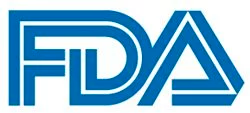FDA Approves Enfortumab Vedotin Plus Pembrolizumab for Locally Advanced or Metastatic Urothelial Cancer
The FDA has approved enfortumab vedotin in combination with pembrolizumab for patients with locally advanced or metastatic urothelial cancer.

The FDA has approved enfortumab vedotin-ejfv (Padcev) in combination with pembrolizumab (Keytruda) for patients with locally advanced or metastatic urothelial cancer.1
Previously, in April 2023, the FDA granted accelerated approval to the combination for patients with locally advanced or metastatic urothelial carcinoma who are not eligible for cisplatin-containing chemotherapy.2
Efficacy for the approval in all-comers was evaluated in the randomized, open-label, phase 3 EV-302/KEYNOTE-A39 trial (NCT04223856).1,3 Findings showed that in the 886 patients with locally advanced or metastatic urothelial cancer who had not received prior systemic therapy for advanced disease, enfortumab vedotin plus pembrolizumab led to a statistically significant improvement in progression-free survival (PFS) and overall survival (OS) vs platinum-based chemotherapy alone as assessed by blinded independent central review.1
The median OS was 31.5 months (95% CI, 25.4-not estimable) with enfortumab vedotin/pembrolizumab and 16.1 months (95% CI, 13.9, 18.3) with platinum-based chemotherapy (HR, 0.47; 95% CI, 0.38-0.58; P <.0001). The median PFS was 12.5 months (95% CI, 10.4-16.6) in the investigational arm and 6.3 months (95% CI, 6.2-6.5) in the platinum-based chemotherapy arm (HR, 0.45; 95% CI, 0.38-0.54; P <.0001).
The most common adverse effects that occurred in at least 20% of patients on pembrolizumab/enfortumab vedotin including laboratory abnormalities were increased aspartate aminotransferase, increased creatinine, rash, increased glucose, peripheral neuropathy, increased lipase, decreased lymphocytes, increased alanine aminotransferase, decreased hemoglobin, fatigue, decreased sodium, decreased phosphate, decreased albumin, pruritus, and diarrhea. Alopecia, decreased weight, decreased appetite, increased urate, decreased neutrophils, decreased potassium, dry eye, nausea, constipation, increased potassium, dysgeusia, urinary tract infection, and decreased platelets were also frequently reported.
References
- FDA approves enfortumab vedotin-ejfv with pembrolizumab for locally advanced or metastatic urothelial cancer. FDA. December 15, 2023. Accessed December 15, 2023. https://www.fda.gov/drugs/resources-information-approved-drugs/fda-approves-enfortumab-vedotin-ejfv-pembrolizumab-locally-advanced-or-metastatic-urothelial-cancer
- FDA grants accelerated approval to enfortumab vedotin-ejfv with pembrolizumab for locally advanced or metastatic urothelial carcinoma. FDA. April 3, 2023. Accessed December 15, 2023. https://www.fda.gov/drugs/resources-information-approved-drugs/
- Powles TB, Perez Valderrama B, Gupta S, et al. LBA6 EV-302/KEYNOTE-A39: open-label, randomized phase III study of enfortumab vedotin in combination with pembrolizumab (EV+P) vs chemotherapy (chemo) in previously untreated locally advanced metastatic urothelial carcinoma (la/mUC). Ann Oncol. 2023;34(suppl 2):S1340. doi:10.1016/j.annonc.2023.10.106



